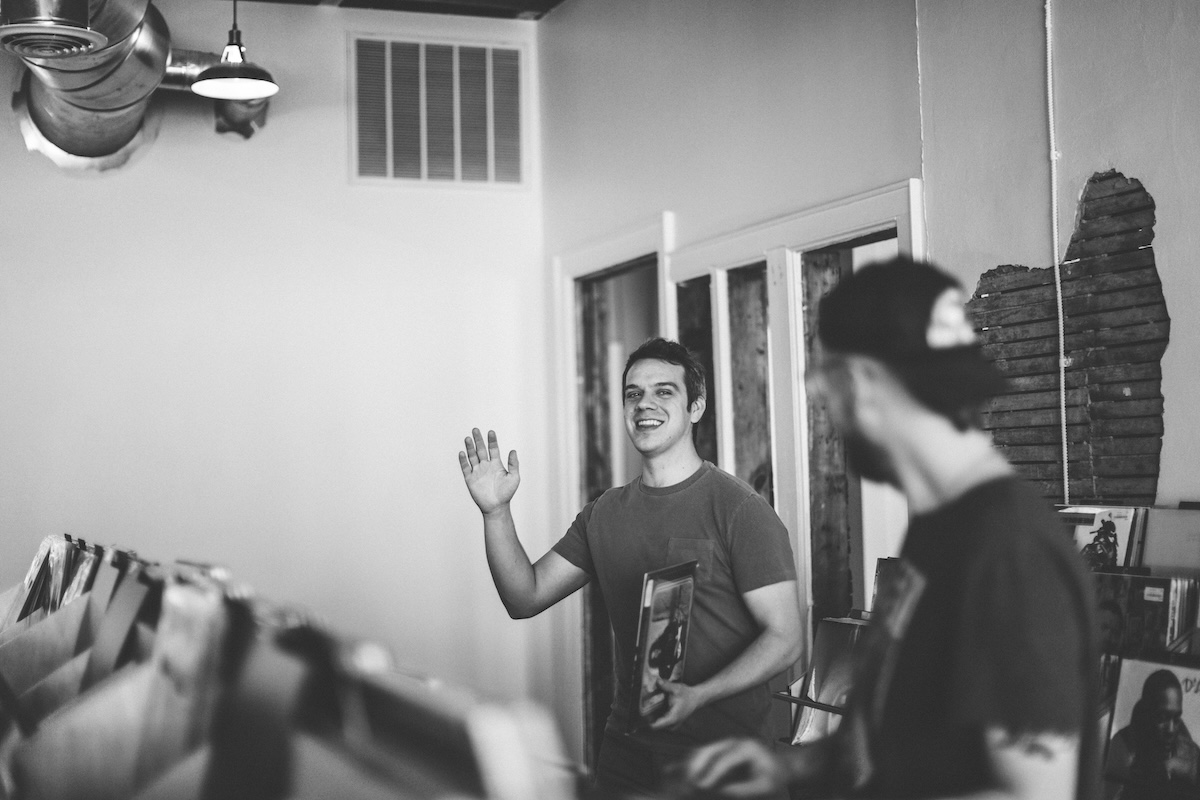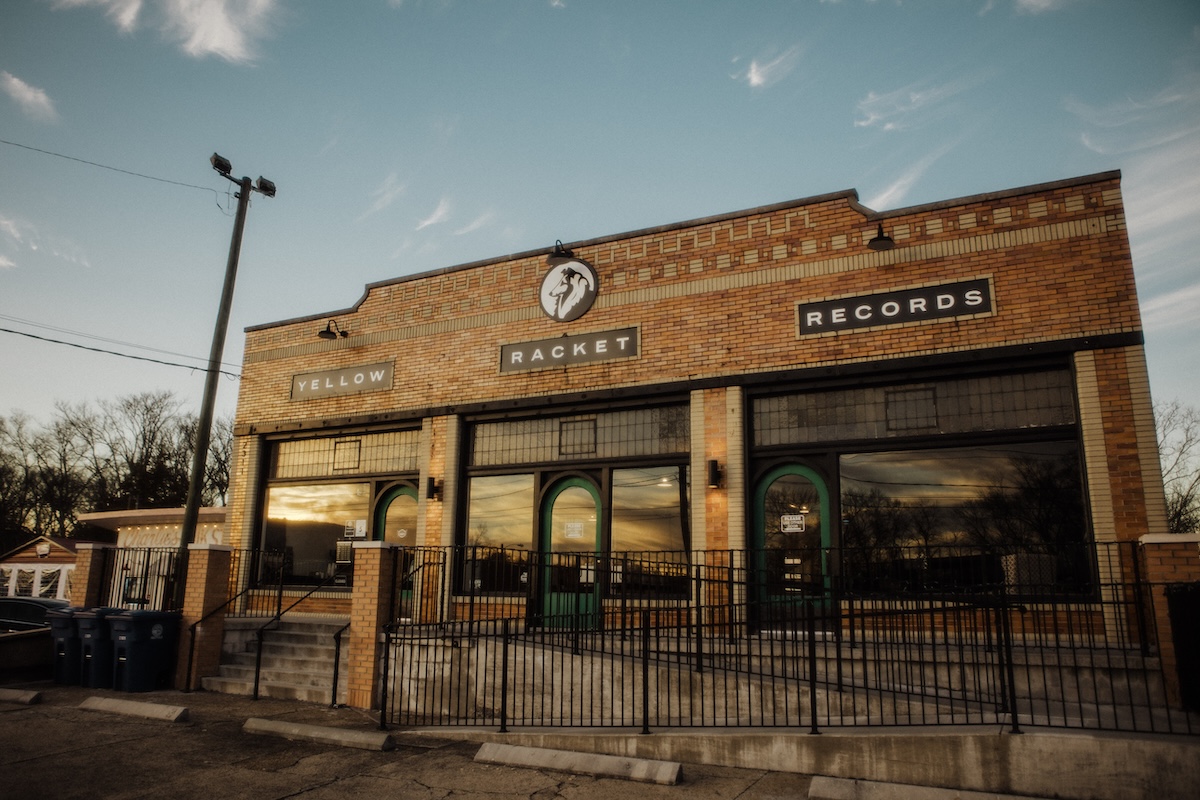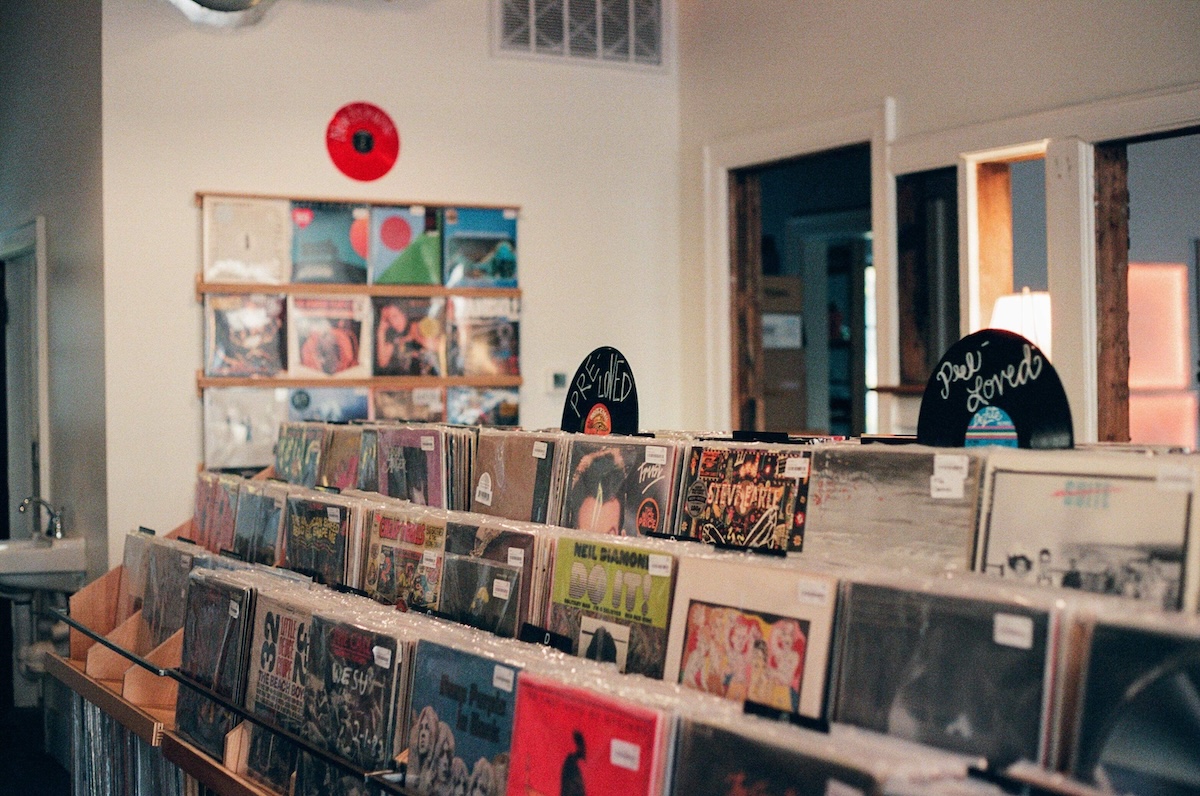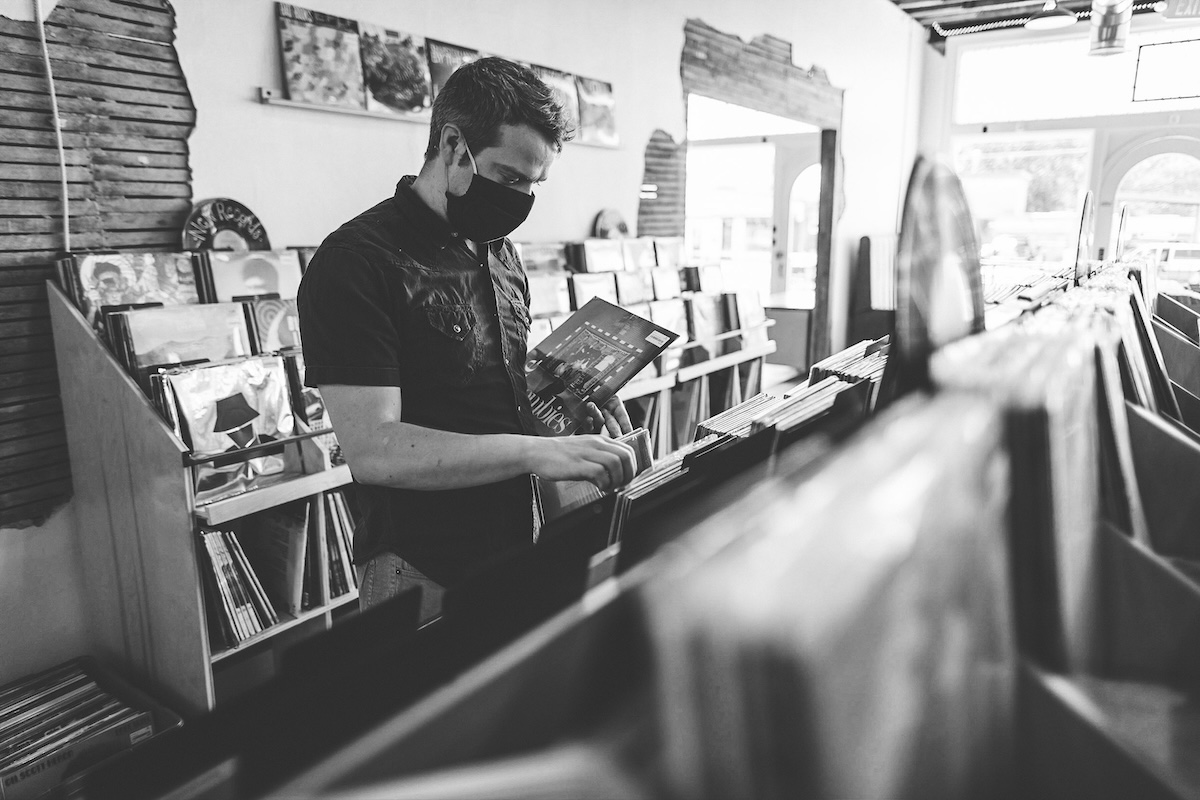As I walk into Yellow Racket Records at 2311 E. Main Street in Chattanooga, Tennessee, Destroyer is playing over the loudspeakers. Ben VanderHart, the founder and creative director of the store, is sitting at a table in the Listening Room, a space situated in the next room over from the main store area, where listening parties and live shows take place. We greet each other, and VanderHart invites me to sit. We know each other because his record store is a five-minute drive from my neighborhood in downtown’s Southside district.
VanderHart originally started Yellow Racket in 2018 as a label.
At the time, VanderHart was working in the logistics industry, doing proposal management. “I started thinking, what’s the outcome if I do good at my job here? Who am I really impacting? And aside from having predictable income and benefits or anything like that, I came to the conclusion that if I do a good job here, then we might make toothpaste a few cents cheaper. But the people who own all these companies are just getting a lot wealthier. And I didn’t feel good about that. I didn’t want that to be my legacy.”
VanderHart says he knew he wanted to do something in music, and he didn’t care what that might be. He was working on an album for his band at the time, Telemonster, but didn’t have a label. Rather than look for one, he took inspiration from Sufjan Stevens and Cocteau Twins and started his own, called Yellow Racket, in 2018.
“I started the label knowing this probably isn’t going to work,” he says. “But whether the label works or not, I’m going to leave this job no matter what. I’ll find something else.”


To make ends meet while starting his label, he worked as a farm hand, a janitor, and a services administrator for a professional coalition. Then a friend encouraged him to start a record store in the same vein as Sub Pop Records and Rough Trade Records, labels that had a storefront.
“I kept getting told this wasn’t going to work, [people] asking me why on earth are you going to start retail when everybody’s streaming these days? At the time, I’d been collecting records for a long time, and I had tons of friends who were collecting records, so in my head, it was already a thing. There were cool record stores in Nashville and Athens, and Atlanta. And so to me, it was just crazy that we didn’t have more record stores here.”
VanderHart signed the lease to his storefront in February of 2020, and then during the second week of March, the whole world shut down due to COVID.
“At that point, I had investors who lent me money, saying, ‘Hey, don’t worry about it. Just cut your losses and give up.’ And I was like, no, I’m not going to do that. I’ve already put so much effort and hard work into this.”
So Yellow Racket Records went online in July, and then opened its doors in August of that year, with the niche of selling predominantly new, indie records rather than used, classic rock vinyl that the few other record stores in town offered, which were mainly located within book or clothing shops, and antique stores.
Another way VanderHart distinguishes himself from other stores is his social media presence, which is his transparency about owning a small business, particularly a record shop, which has a small margin of profitability.


“As I started sharing my opinions and as a lot of my convictions about big business versus small business became more fortified, as I continued to do this work and realize just how difficult it is for a small business to survive in the current landscape, I just started to share some of those opinions and people really seemed to engage with that,” he says. “And they seemed like they wanted to hear more.”
While VanderHart doesn’t feel comfortable being in front of the camera, he feels like it’s his duty to let people know what’s at stake. “I see so much into the music industry that most of us are never privy to and not aware of,” he says. As much as he may not want to be the face of his record store, everyone knows that VanderHart is the heart and soul of Yellow Racket, not just by his social media posts, but by his advocacy for other record stores and the Chattanooga community as a whole.
“Other independent record stores in town are not my primary competition,” he says. “If Yellow Racket goes out of business, I’m not going to blame the other record stores in town for taking a piece of this tiny little pie that we’re trying to split.”
How do you find your records?
We have a lot of records that just walk through the door every day, where people are finding boxes of records in their house or deciding that they’ve got five or six records they don’t listen to anymore, so they’ll trade them in. And then we buy a lot of records from record labels, from wholesalers, and from distributors. So yeah, they come from all over the place. Every once in a while, I get a phone call and somebody says, “Hey, I live two hours away. I’ve got 2,000 records. Can you come look at them?” And so sometimes we do that, too.


What’s the most expensive record you’ve ever sold?
We sold a copy of Taylor Swift’s 1989 Record Store Day 2018 limited edition. It was on pink vinyl, and it was one of 3,000. And one of our customers brought it in and said, “I’m afraid to sell this myself because it’s so valuable. Will you help me sell it on consignment?” And it sold for $1,600.
The rarest?
Oh, man, the rarest record…there’s a handful that come to mind. We haven’t had a whole lot of the ones that you hear about. We’ve never had a butcher copy of Yesterday and Today. We’ve maybe had one Led Zeppelin II RL pressing. The one that comes to mind right away is one that we just picked up recently, which is a Dale Hawkins record, the guy who wrote “Susie Q.” It just came in, and it’s a first pressing on Chess Records. It’s valuable.
Who’s the most famous person who ever came into your store?
I’m pretty sure that would have to be Leslie Jordan. He released an album back in 2021, I believe. He had been blowing up on social media for his COVID videos. He was back home here in Chattanooga for a good bit of that time. I remember sending an email out to his management through the website saying, “Hey, I don’t know if Leslie Jordan is in town. We’d love to maybe do a signing with him if he wants to. We know his new record’s coming out.” And I never heard anything back. Then the day his record came out, he just came strolling through the door. So we all took pictures with him, and he was sweet as can be. He was the ambassador for Riverbend [Festival] the following year. His management reached out and said, “Hey, you know, we’d love to do a record signing at the Yellow Racket tent.” So he did three days of signings. He would come for an hour to the tent and sign records for people. He was just the sweetest guy.


Your first concert?
When I grew up, I wasn’t even allowed to listen to rock music, and my mom would take me to the symphony and stuff like that. But if you don’t count any of that, and you talk about a real ticketed concert where I went and bought the tickets, it was ZZ Top at the county fair back in Iowa, where I’m from. They were playing on a stage in the middle of the dirt track in the horse racing arena in 2006 or 2005, something like that.
Favorite album?
One? My favorite album, one that’s been most impactful to me, is Radiohead’s Kid A.
Advice for someone who wants to open a record store?
Don’t do it. But I think we have to do it. I have to say, it’s the hardest thing you will ever do. It’s probably the loneliest thing that you will ever do. But if you do it, focus on the people. Focus on the community. And focus on building friendships and relationships. Because ultimately, that’s the only thing that’s going to keep a record store open in this day and age, is if people care more about their local community and the people who live and work in their community and in their local record store. Because, otherwise, they’ll just buy online.




